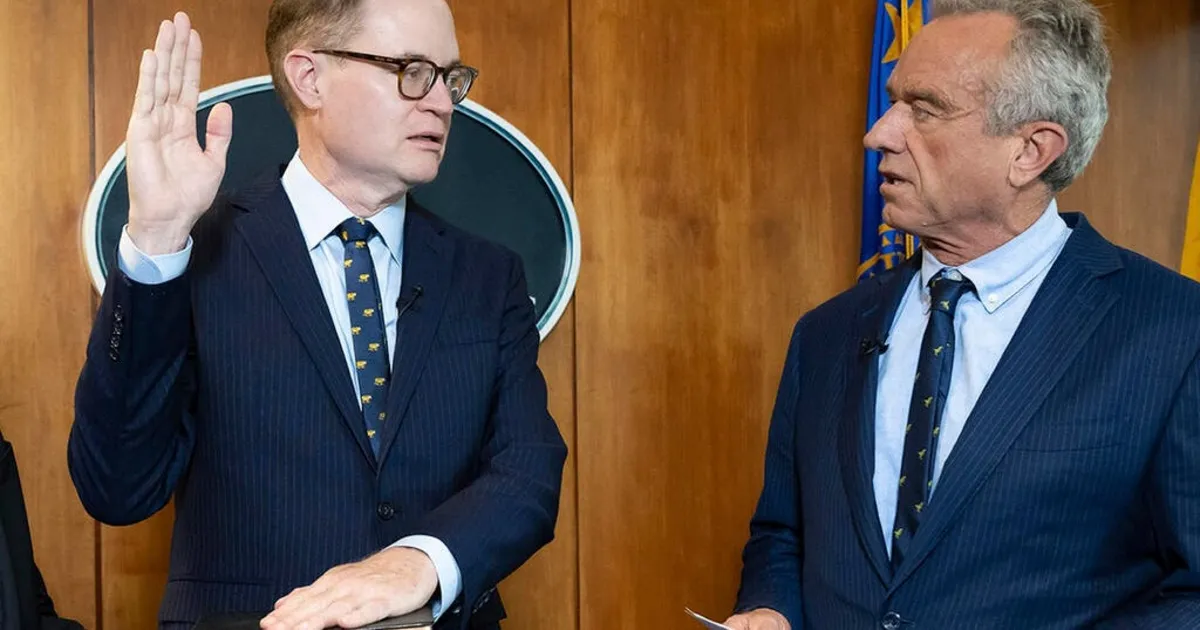
Jim O'Neill has been appointed as the acting director of the Centers for Disease Control and Prevention (CDC), according to a source familiar with the situation. This announcement comes just one day after the Senate-confirmed leader of the CDC was ousted. O'Neill, a former tech investor, currently holds the position of deputy secretary at the Health and Human Services (HHS) department, serving under Secretary Robert F. Kennedy Jr..
The White House has been contacted for comments regarding this abrupt change in leadership, which follows a chaotic 24-hour period for the Atlanta-based public health agency. O'Neill's takeover of the CDC coincides with significant upheaval within the organization, including the firing of Susan Monarez, who was terminated by the White House after just a few weeks in her role. Monarez's legal team argues that only President Trump has the authority to terminate her position, claiming she was targeted for resisting unscientific and reckless directives.
In recent days, at least four other senior CDC leaders have resigned, some publicly criticizing the Trump administration's stance on vaccines and budget cuts to the agency. O'Neill's appointment comes at a time when the CDC is facing intense scrutiny and internal strife. He has held the role of deputy HHS secretary since June and previously worked with the HHS during the administration of former President George W. Bush.
O'Neill's biography at HHS highlights his involvement in reforming Food and Drug Administration (FDA) regulations to enhance food safety during the late 2000s. His past experience includes a tenure as the CEO of the nonprofit Thiel Foundation and co-founding the Thiel Fellowship, which offers $200,000 scholarships to young entrepreneurs who agree to forgo traditional education. He also worked at Thiel's hedge fund, Clarium Capital.
Monarez's dismissal from the CDC has sparked significant controversy, occurring less than a month after her Senate confirmation. White House spokesman Kush Desai indicated that Monarez did not align with the President's agenda of "Making America Healthy Again." Her lawyer, Mark Zaid, criticized the legality of her termination, stating it was flawed because it was executed by a White House staffer rather than directly by the President.
The CDC has experienced a tumultuous period marked by numerous layoffs and sweeping changes initiated by Kennedy, who has been a longstanding skeptic of vaccines. He has publicly questioned the efficacy of COVID-19 vaccinations and has promoted debunked theories linking certain childhood vaccines to autism. Earlier this year, Kennedy dismissed all members of the CDC's independent vaccine advisory panel, further intensifying the agency's internal conflicts.
Internal tensions have been exacerbated by the ongoing fallout from a shooting incident outside the CDC headquarters, where the gunman expressed grievances related to COVID-19 vaccinations. In a resignation email to CDC staff, former Chief Medical Officer Debra Houry warned about the rising tide of misinformation regarding vaccines, emphasizing that "the science at CDC should never be censored or subject to political pauses or interpretations." Another high-profile resignation came from Demetre Daskalakis, who criticized the current administration's approach to public health in a scathing letter, stating he had never encountered such a lack of transparency in his career.
The wave of resignations and Monarez's firing has provoked strong reactions from congressional Democrats and some Republicans. Republican Senator Bill Cassidy of Louisiana emphasized the need for oversight in light of these departures, while Democratic Senator Patty Murray labeled Kennedy as "a dangerous man," calling for his dismissal. In response to the upheaval, Kennedy described the CDC as "very troubled," asserting that significant changes are necessary to alter the agency's institutional culture.
As the CDC navigates these challenges under O'Neill's leadership, the future of public health policies and initiatives remains uncertain. The agency is at a crossroads, with the potential for transformative changes depending on how the new acting director addresses the ongoing turmoil and public trust in vaccinations.